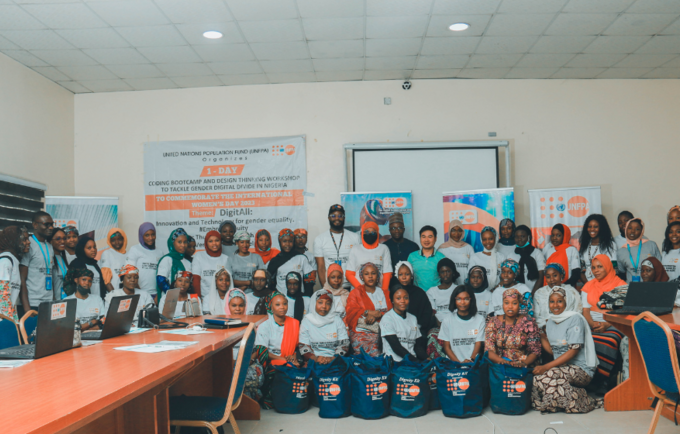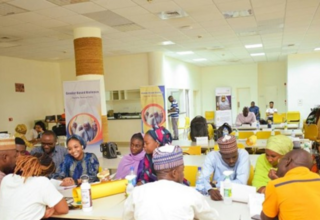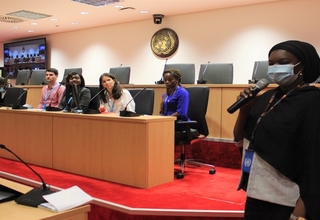Nowdays internet and the digital world have an important presence and being able to navigate it is crucial to success. This year the theme for International Women’s Day was “DigitALL: Innovation and technology for gender equality”
UNFPA Nigeria, in collaboration with top tech start-ups in Borno, leads the Borno youth Digital Summit that sensitizes 150 youths on existing and emerging opportunities in tech. The summit covered topics of Leadership & personal development, technology-facilitated GBV, building a tech start-up and the significance of vocational skills to empower young adults
to achieve gender equality and the empowerment of all women and girls through tech.
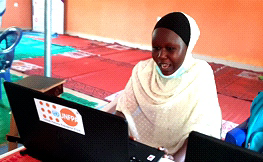
Amina Abdulrahman is 20 years old and one of the attendes saw the summit as an opportunity to improve her life “Ever since I was a child, it has always been my passion to see myself being able to operate the computer. As a result of this training, I have developed an interest in studying computer engineering at university"
Also, the team in Maiduguri organized a 1-day coding and design thinking bootcamp for 50 women and girls between ages 18-24 in Maiduguri, Borno state.
“Ever since I was a child, it has always been my passion to see myself being able to operate the computer. As a result of this training, I have developed an interest in studying computer engineering at university"
The workshop involved hands-on coding exercises as well as sensitization on technology-facilitated gender-based violence, internet safety and information on how to join the tech community. Most participants had little to no basic knowledge around digital tech use and the other training topics despite desires to learn more and develop skills around these subjects prior. As an effort to improve access to online education and digital training opportunities, the workshop resulted in marked improvement in participants’ understanding of new concepts related to digital tech and online participation to better equip those entering and already active online.
The gender digital divide refers to increasing inequalities in access and use of digital technologies between men and women globally. Nigeria, the most populous country in Africa, is currently witnessing significant inequalities with regard to digital access as a result of widespread gender disparity. Nigerian women are the least likely to have access to digital technologies such as smart phones, computers, and the internet due to limitations in affordability, lack of infrastructure and limited availability and access to spaces with Free WiFi.
Another woman that believes that her future is in computing is Fatima who said “I learned a lot to be honest, this training has made an impact in my life also it motivated me in to going into digital programming and to have confidence in what I am doing. I also learned new things like how to TACKLE GENDER DIGITAL DIVIDE IN NIGERIA it was amazing I met new friend who are into tech.”
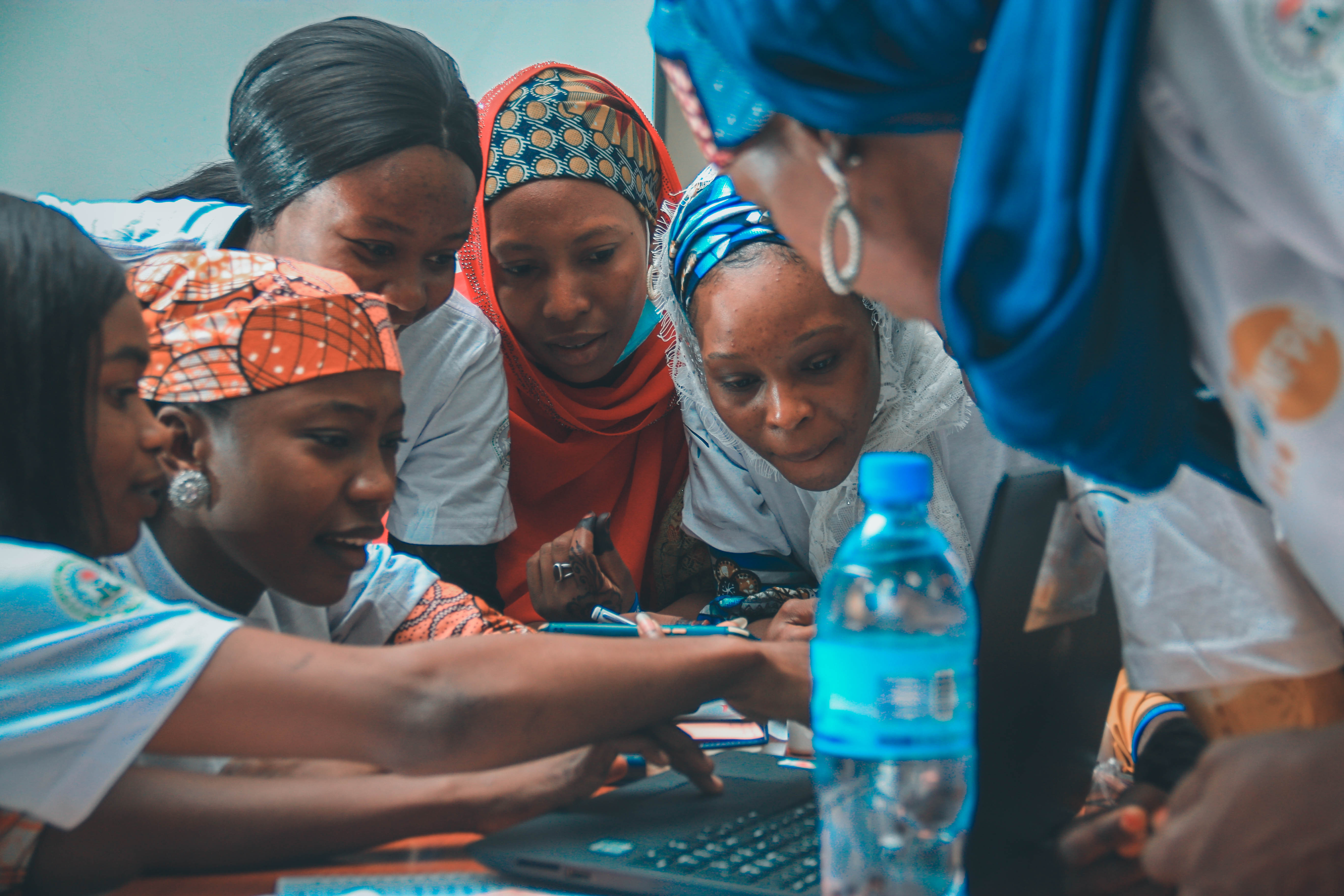 Online discrimination, harassment and fear of online abuse are also factors contributing to barriers in digital technology for women and girls, in particular. This gender digital divide has increasing implications on women’s economic empowerment, education, and participation in civic and political life. Nigerian women who lack access to digital technologies are the most disadvantaged in the job market and especially amidst the growing global digital economy.
Online discrimination, harassment and fear of online abuse are also factors contributing to barriers in digital technology for women and girls, in particular. This gender digital divide has increasing implications on women’s economic empowerment, education, and participation in civic and political life. Nigerian women who lack access to digital technologies are the most disadvantaged in the job market and especially amidst the growing global digital economy.
Nigerian women lacking access to digital technologies are the most disadvantaged in the job market, especially amidst the growing global digital economy. Because of that, UNFPA is working on providing training and opportunities to achieve equality in tech.
